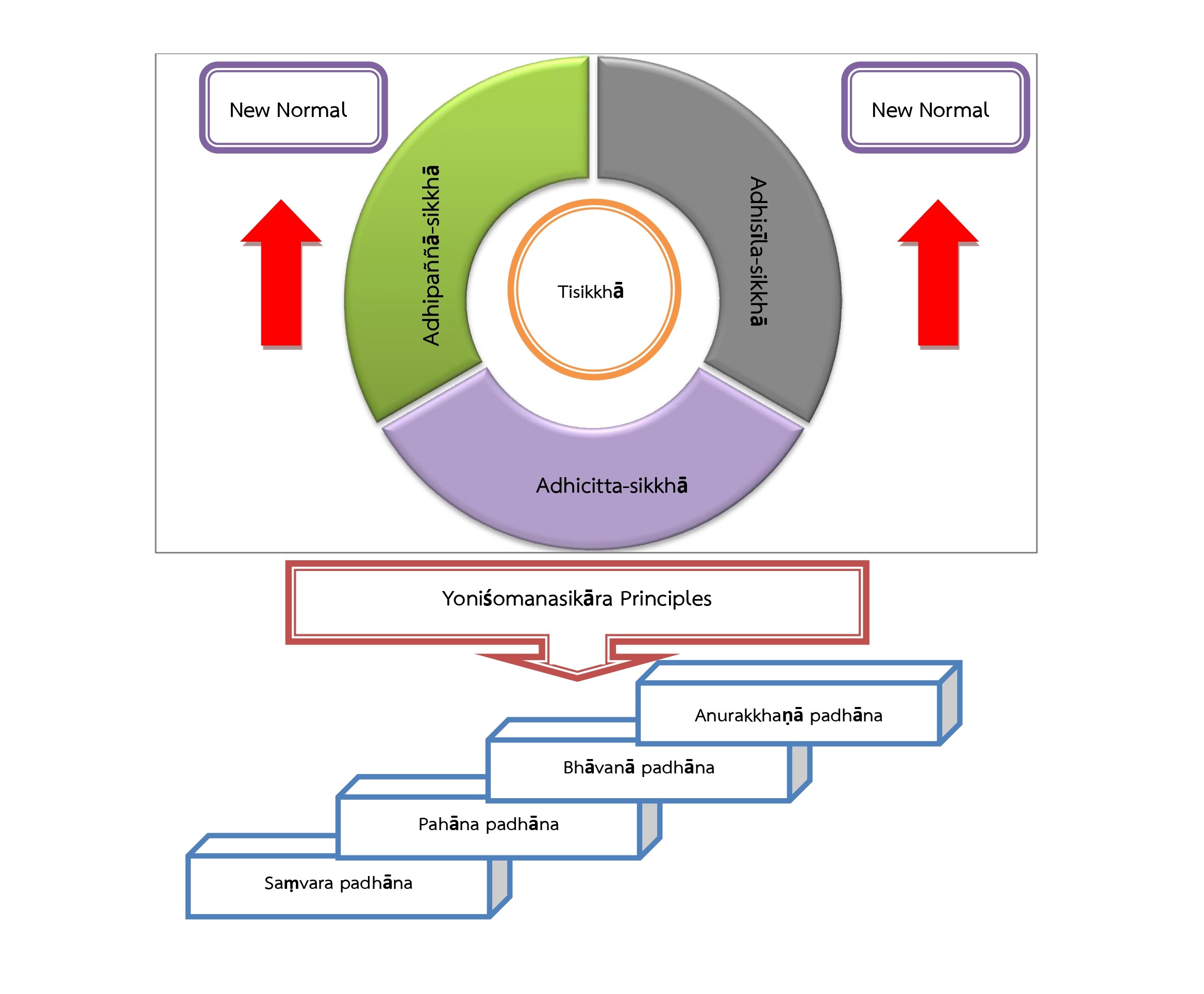AN ANALYSIS OF BUDDHIST MONKS' ADAPTATION TO PROPAGATION OF THE BUDDHA'S TEACHINGS DURING THE COVID-19 PANDEMIC
Keywords:
Analysis, Adaptation, Monks, Propagating, COVID-19Abstract
Background and Objective: The propagation of the Buddha's teachings is an important mission of Buddhist monks. As the Lord Buddha teaches on the first day that the Lord Buddha sends monks to preach Buddhism for the first time "Wander forth, O bhikkhus, for the welfare of the multitude, for the happiness of the multitude, out of compassion for the world, for the good, welfare, and happiness of devas and humans. Let not two go the same way. Teach, O bhikkhus, the Dharma that is good in the beginning, good in the middle, good in the end, with the right meaning and phrasing. Reveal the perfectly complete and purified holy life." The Buddha's teachings that The Lord Buddha discovers and propagates are the natural principles of suffering. Therefore, monks are important persons who have to bring those principles to the people. This study consists of the following objectives: To study the concept of social adaptation in the COVID-19 pandemic, study the role of monks in propagating Buddha's teachings, and analyze the adaptation of monks in propagating Buddha's teachings in society during the COVID-19 pandemic.
Methodology: This qualitative research was conducted with data collection through relevant documents and in - depth interviews.
Main Results: The results revealed as indicated: 1) The concept of social adaptation during the pandemic of COVID-19 indicated that people were related to each other, and each of them had unique characteristics. They were observable, examinable, and measurable based on their behavior reflections and competencies. It was necessary to take account of the self - assessment or perception of the person in the immediate environment; 2) The role of the Buddhist monks in propagating Buddha's teachings for developing human virtue in life which should have been cultivated in human beings to achieve their inner qualities that included physical qualities, moral qualities, mental qualities, and intellectual qualities that could have been affected one's exterior, it was a relationship between people and objects. The important Buddha's teaching was Tisikkhā (Threefold Training); 3) The analysis results of monks' adaptation to propagation of Buddha's teachings in society during the pandemic of COVID-19 indicated that the monks should have been lived within the framework of the Dharma and Vinaya. In addition, they should have been studied and acquired knowledge that was advanced in modern technology for developing the potential of Buddha's monks which allowed them to promote and support people in applying Dhamma principles in their daily lives that could have been brought happiness for themselves, their families, communities, monkhood, temples, and society.
Involvement to Buddhadhamma: The adaptation of Buddhist monks in the propagation of Buddha's teachings in society during the outbreak of COVID-19 is related to the nature of applied Buddhism, including the Tisikkhā (Threefold Training).
Conclusions: The Buddha's teachings taught people to refrain from evil, to do good deeds, and to train our minds to be pure for prosperity and peace in society. Monks, therefore, had to play their roles accordingly with the present generation by propagating Buddha's teachings online so that lay people could access Buddha's teachings and continue to maintain the religion. The role of the monks in the current day was crucial. The adjustment of the role of the Buddhist monks to fit in modern society by defining the duties of the monks in society in section 15 of Thailand's law indicated that the commissioned monks had to govern Buddhist monks in an orderly manner, which included regulating and promoting religious education, welfare, propagation, public utilities and the public welfare for the monks which had been a proactive role, especially in the society during the pandemic of COVID-19.
References
Bureau of Risk Communication and Health Behavior Development, Department of Disease Control. (2020). Coronavirus Disease 2019 Prevention and Control Manual for the Public. Bureau of Risk Communication and Health Behavior Development, Department of Disease Control.
Cronbach, L. J. (1970). Essentials of Psychological Test (5th ed.). Harper Collins.
Department of Disease Control. (2023). Situation of Coronavirus Disease 2019 (COVID-19). Office of the Secretary of National Addiction treatment & Rehabilitation Committee, Ministry of Public Health.
Faculty of Medicine Ramathibodi Hospital Mahidol University. (2020). CORONA VIRUS. @Rama, 37(June 2020), 26-27.
Mahachulalongkornrajavidyalaya University. (1996). Pali language poems Mahachulalongkorn Wiseso edition. Spirit Printing House.
Phrakru Sangkaraksupanat Puriwatanano. (2021). The way of monk to adapt in the new normal. Nakhon Lampang Buddhist's journal, 10(3), 184-197.
Phramaha Thanongchai Buranaphisut. (2002). The roles of the Buddhist monastery in the urban community in bang-rak district bangkok province. [Unpublished Master's thesis]. Mahidol Univerisity.
Phra Phromkunaporn (P.A. Payutto). (2012). Buddha Dharma expansion. (32nd ed.). Saha Thammik Co., Ltd. printing house.
Pongsopon, T. (1996). The role of the monks. Personal media for guiding and raising rural people's consciousness For Participation in Local Development Case Study: Priests at the Abbot Level Kanchanaburi Province.[Master's thesis, Thammasat University]. Thammasat University Digital Collections. https://digital.library.tu.ac.th/tu_dc/frontend/Info/item/dc:118824.
Reechewacheepkul, P. (2021). Monks knowledge about the prevention of corona virus spreading: a case study of monks in Ban Suan sub-district, Chonburi Province. [Unpublished Master's thesis]. Burapha University.

Downloads
Published
How to Cite
Issue
Section
License
Copyright (c) 2023 Journal of Buddhist Anthropology

This work is licensed under a Creative Commons Attribution-NonCommercial-NoDerivatives 4.0 International License.








